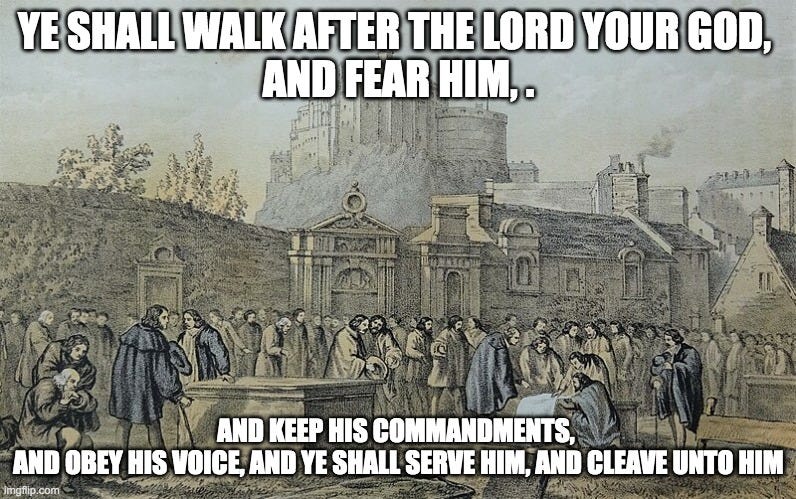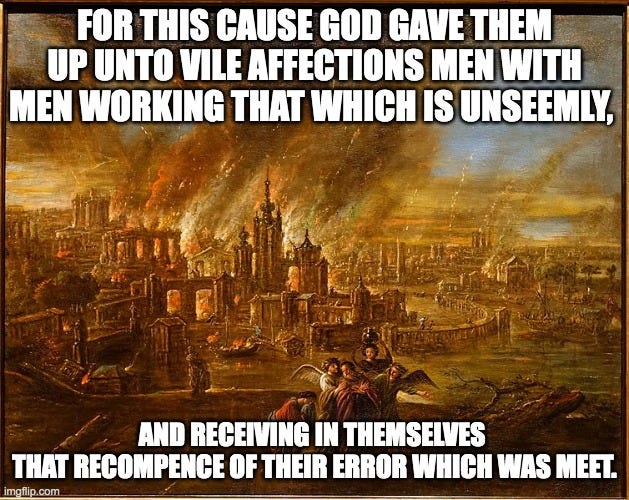Then one of them, which was a lawyer, asked him a question, tempting him, and saying,
Master, which is the great commandment in the law?
Jesus said unto him, Thou shalt love the Lord thy God with all thy heart, and with all thy soul, and with all thy mind.
This is the first and great commandment.
And the second is like unto it, Thou shalt love thy neighbour as thyself.
On these two commandments hang all the law and the prophets.
Matthew 22:35-40
I am come to send fire on the earth; and what will I, if it be already kindled?
But I have a baptism to be baptized with; and how am I straitened till it be accomplished!
Suppose ye that I am come to give peace on earth? I tell you, Nay; but rather division:
For from henceforth there shall be five in one house divided, three against two, and two against three.
The father shall be divided against the son, and the son against the father; the mother against the daughter, and the daughter against the mother; the mother in law against her daughter in law, and the daughter in law against her mother in law.
Luke 12:49-53
Contradiction: Not
There are no contradictions in Scripture. If you believe otherwise, this post is not for you.
There are dozens of contradictions in Scripture. If you believe otherwise, this post is not for you.
If the above seem confusing, read on :)
Answer not a fool according to his folly, lest thou also be like unto him.
Answer a fool according to his folly, lest he be wise in his own conceit.
Proverbs 26:4,5 (Emphasis added)
A ‘contradiction’ can mean several things, and thus call us to several different modes of acting. Some, as in answering the fool, present a Catch 22. If you answer a fool, he will be impressed with himself. If you don’t, you risk falling into folly. So what are we to do? Well, first of all, we are to recognize the problem. Secondly, use wisdom to determine which proverb to apply, or when to apply each proverb or… how to apply both at once!
The kind of contradiction we are dealing with with the two passages above, however, are very different. Look at the way the word ‘love’ is used in the poem below:
On the first Feminian Sandstones we were promised the Fuller Life
(Which started by loving our neighbour and ended by loving his wife)
Till our women had no more children and the men lost reason and faith,
And the Gods of the Copybook Headings said: "The Wages of Sin is Death.
This is called ‘equivocation’. The ‘love’ that we are to have to our neighbor is not sexual. The ‘love’ that is mentioned in regards to his wife was. The same word ‘love’ is being used to mean two seperate things.
Similarly, when we read that we are to ‘love’ our neighbor, it is contradictorty to our normal view of ‘love’ that we would cause division with him, and between him and others.
True Love
Rejoiceth not in iniquity, but rejoiceth in the truth;
I Corinthians 13:6
We do not have an accurate view of what ‘love’ is. Does love ‘rejoice’? Certainly… it rejoices in the truth. But it does not rejoice in iniquity. So, in order to truly love, one must know the truth, and hate iniquity. Which involves understanding iniquity!
All too often when someone says we should ‘love’ someone else, the ‘love’ they are speaking of is not true love at all. It is, indeed, a form of hate. We do not love the sinner by going along with his sin, or excusing his sin. We love him when we tell him to ‘sin no more’.
The Side of Truth
And if it seem evil unto you to serve the LORD, choose you this day whom ye will serve; whether the gods which your fathers served that were on the other side of the flood, or the gods of the Amorites, in whose land ye dwell: but as for me and my house, we will serve the LORD.
Joshua 24:14
For whosoever shall do the will of my Father which is in heaven, the same is my brother, and sister, and mother.
Matthew 12:50
As Christians we are to stand on the side of truth. This means we stand against evil.
The world is divided in many ways, and one of those ways is the division between light and darkness, good and evil, heaven and hell. We do not show love, and we cannot form unity, when we ignore the division between truth and lies.
The Side of the Gospel
I marvel that ye are so soon removed from him that called you into the grace of Christ unto another gospel:
Which is not another; but there be some that trouble you, and would pervert the gospel of Christ.
But though we, or an angel from heaven, preach any other gospel unto you than that which we have preached unto you, let him be accursed.
As we said before, so say I now again, If any man preach any other gospel unto you than that ye have received, let him be accursed.
For do I now persuade men, or God? or do I seek to please men? for if I yet pleased men, I should not be the servant of Christ.
Galatians 1:6-10
The theme should be familiar by now. If someone denies the gospel, or preaches ‘another’ gospel, they are not your friend, they are your enemy. They are not to be unified, but to be contradicted and divided from.
Introduction/Conclusion
What shall therefore the lord of the vineyard do? he will come and destroy the husbandmen, and will give the vineyard unto others.
Mark 12:9
And the remnant took his servants, and entreated them spitefully, and slew them.
But when the king heard thereof, he was wroth: and he sent forth his armies, and destroyed those murderers, and burned up their city.
Matthew 22:6-7
This post is in response to a question from
":As promised, a question.
Though I have managed to condense it a bit yet retain its original purpose:
Considering the Biblical teaching of loving your neighbor as yourself, as emphasized in Leviticus 19:18 and reiterated by Jesus in Matthew 22:39, how can we practice this commandment in a world marked by division and misunderstanding?
What practical steps can we take to bridge gaps and foster genuine community?
So the question starts with ‘loving your neighbour’ and ends with ‘bridging gaps’, and passes over ‘division’ in the middle. Hopefully my answer has touched on all three of those issues:
We need to understand what love is, and what it looks like to love our neighbour.
We need to understand why the divisions are there.
We need to understand if the gap needs to be bridged, or if there is an opponent to be defeated.
Those may not seem like particularly ‘practical steps’. Well, OK, they’re not. They are the steps you need to take before you can find practical steps. You have to know your goal. You have to understand the problem. Only then can you start looking for practical solutions.
Thank you for reading Von’s Substack. I would love it if you commented! I love hearing from readers, especially critical comments. I would love to start more letter exchanges, so if there’s a subject you’re interested in, get writing and tag me!
Being ‘restacked’ and mentioned in ‘notes’ is very important for lesser-known stacks so… feel free! I’m semi-retired and write as a ministry (and for fun) so you don’t need to feel guilty you aren’t paying for anything, but if you enjoy my writing (even if you dramatically disagree with it), then restack, please! Or mention me in one of your own posts.
If I don’t write you back it is almost certain that I didn’t see it, so please feel free to comment and link to your post. Or if you just think I would be interested in your post!
If you get lost, check out my ‘Table of Contents’ which I try to keep up to date.
Thanks again, God Bless, Soli Deo gloria,
Von







It has been long clear to me that the most loving thing we can do is speak truth. Unfortunately, the truth tends to "hurt" in direct proportion to its accuracy; and most people - unwise, ego driven and fragile - turn that hurt back towards the speaker in the form of spite, rejection and hate.
The Greeks had names for nine different types of love. The Bible mentions four of these. Some love is very dangerous. If a Greek were here today from the past he would be shocked modern man has only one.